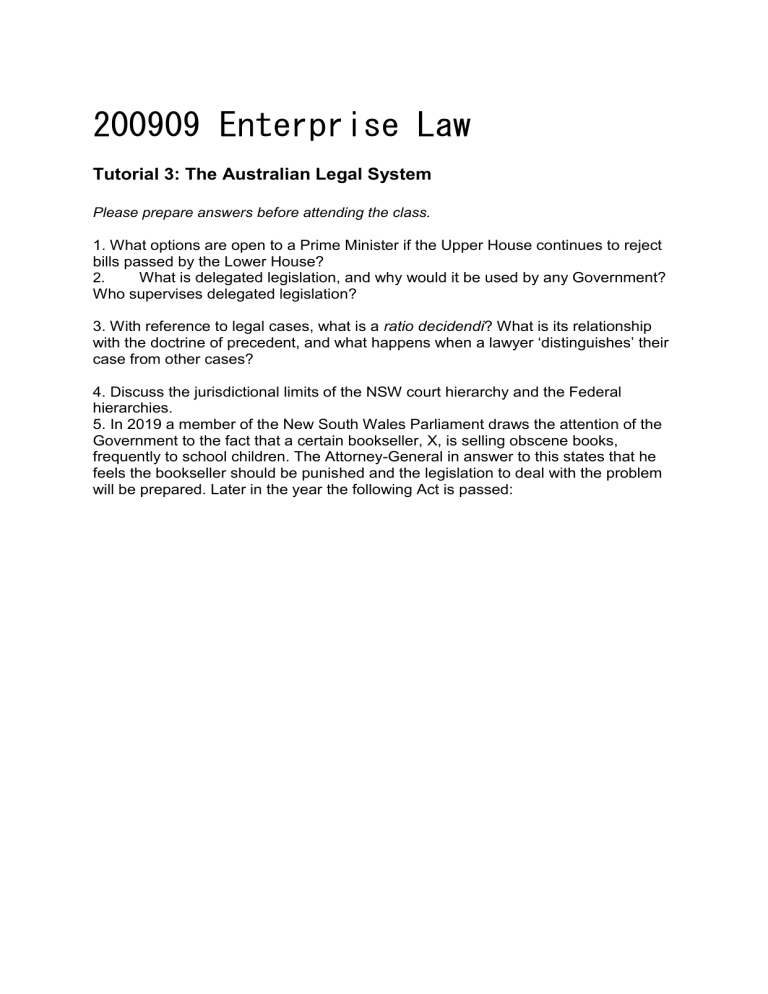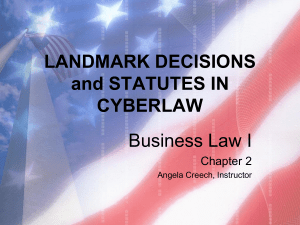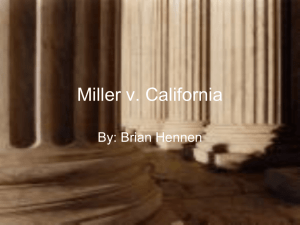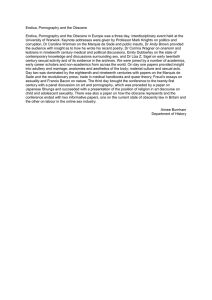
200909 Enterprise Law Tutorial 3: The Australian Legal System Please prepare answers before attending the class. 1. What options are open to a Prime Minister if the Upper House continues to reject bills passed by the Lower House? 2. What is delegated legislation, and why would it be used by any Government? Who supervises delegated legislation? 3. With reference to legal cases, what is a ratio decidendi? What is its relationship with the doctrine of precedent, and what happens when a lawyer ‘distinguishes’ their case from other cases? 4. Discuss the jurisdictional limits of the NSW court hierarchy and the Federal hierarchies. 5. In 2019 a member of the New South Wales Parliament draws the attention of the Government to the fact that a certain bookseller, X, is selling obscene books, frequently to school children. The Attorney-General in answer to this states that he feels the bookseller should be punished and the legislation to deal with the problem will be prepared. Later in the year the following Act is passed: An Act to regulate the Sale of Obscene and Indecent Books. Whereas it is desirable that young and impressionable persons should be prevented from purchasing obscene and indecent books be it enacted that:1. No person shall sell or have in his possession any obscene or indecent book, pamphlet, picture or other work. 2. Any person convicted of selling or having in his possession any such work shall be liable to a penalty of a fine not exceeding $500 or imprisonment for 6 months or a fine not exceeding $100 or imprisonment of 10 days. 3. In any prosecution under the preceding sections if the magistrate hearing the case is satisfied that the work giving rise to the prosecution is obscene then whether he decides that the person accused is guilty of an offence or not, he shall order the confiscation of the work. Consider the application of this Act to the following cases: a. X, the bookseller whose activities led to the passing of the Act, is prosecuted in respect of a sale which took place before the Act was passed. She is also prosecuted in respect of her possession of another book after the Act became law. Both these books are obscene and the magistrate convicts X on both counts, imposing a fine of $250 in respect of each offence. X appeals against her conviction in the first case and against the sentence passed in the second case. Should she succeed? b. A book importer imports a consignment of books from abroad. On finding that the books are obscene the importer sells them to a company so that they can be pulped. The importer is charged under s 1 with selling obscene books. The magistrate states: “The act of the defendant in selling the books which are undoubtedly obscene is within the clear words of the section and I find him guilty under s 1. If the company were charged I should also find it guilty, but in any case, I must order the confiscation of the books.” The importer wishes to appeal against his conviction and the company against the confiscation. Advise them. 6. ACADEMIC LITERACY: Proofread your work carefully before submission. When you are satisfied with the structure and content of your answer, it is time to proofread for grammar, punctuation and spelling. Use the Australian spelling rather than the American spelling. If you know that you have problems with grammar, consult a grammar book. Alternatively, StudySmart is available to all students. (a) Be careful of pronouns: • Tom told James that he had won the lottery. Who won the lottery? (b) Write two short paragraphs on: Explain what does the burden and standard of proof mean in a civil law matter. Students are to mark their response out of 5. The criteria to be used is that given in the Learning Guide. Answer then to be workshopped in class.


